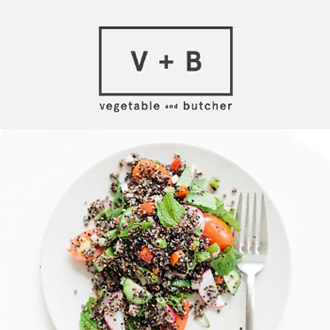A few nights ago, I had an interesting conversation with a friend of a friend about honey. “Honey is better…it’s more natural, and has other stuff than just the sugar in it.” he stated with certainty. “Like what other stuff?” I asked. “Well, other nutrients….there’s gotta be something else in it, it’s yellow,” he observed.
I knew that honey was about the same as sugar in terms of calories and types of sugars, but it occurred to me that beyond that, I didn’t know much about its other benefits, and what was myth or fact. So I decided to do a little digging, and here are the results of the Great Honey vs Sugar Faceoff Death Match 2013 (according to WhyFoodWorks).
- Macronutrient breakdown: it’s a draw
100g of honey is made up of about 41g fructose and 36g glucose, while table sugar (sucrose) is equal parts of both, because fructose and glucose bound together are what makes sucrose. Honey is denser than granulated sugar, so you can’t ever have the same volume AND weight of both at the same time. A Tbsp of honey weighs more than a Tbsp of sugar, so comparing things gets a little tricky. A Tbsp of honey has 60 calories, while a Tbsp of sugar has 45. When you compare by weight, however, an ounce of honey has 85 calories while sugar has 108 per ounce. So it depends how you look at it. But who out there is measuring their sugar on a scale? - Micronutrients: it’s a draw
Yes, honey has a few trace vitamins and minerals that cane sugar doesn’t. But the amount of honey you’d have to eat to get any appreciable amount of these is wildly high. Check out how much potassium, for example, is in a cup (a cup!) of honey here. Definitely not worth the thousand calories and almost 300g of sugar! - Sweetness: another draw
Honey certainly has a different flavor than cane sugar, but most sources indicate that they’re perceived about equally as sweet. - Greenness: Honey (depending)
Fellow RD Holly points out: “Since honey can be produced anywhere bees can live, you can likely get honey that’s made close by! Sugar cane requires a specific (warmer) climate, so it’s likely that if you live in the US, you’ll be supporting local agriculture by buying honey.” So true! If you live in Florida, Texas, Louisiana, or Hawaii local sugar cane might be an option. - Metabolic Response: Honey (maybe)
There are a few studies that suggest that honey doesn’t raise blood glucose as much as sugar. However, it’s notable that most studies to date are in people with diabetes (ie, they already broke or were born with a non-functioning pancreas), and included VERY FEW (on average, less than 10) people per trial. I remain unconvinced that replacing the 10 teaspoons of high-fructose corn syrup in a can of soda with honey would really help you out that much! - Allergies: Honey (but don’t throw out your Claritin)
I had heard that honey can help allergies – the idea being that micro-exposure to pollen could help your body learn not to mount its immune response. However, the Natural Standard Database doesn’t report on any studies, and most other web info appears to indicate that while the logic is promising, there isn’t a great deal of real info to base a conclusion on. This doc says it best, “For now, however, it appears that honey may just be a sweet placebo.” - Other uses: Honey
Turns out honey has topical uses too (I’ll be using it in some Skin Edition recipes coming up!), including a history of therapy for healing wounds and soothing skin, possibly due to antimicrobial properties. Again – fascinating, but if you get a cut, remember that soap and water should be your first go-to! - Cost: Sugar
No contest; sugar is cheaper.
So which won? At the end of the day, having more than a little of any added sweetener isn’t a great idea, and if you’re sticking to a teaspoon in your tea you probably won’t notice much difference in your health by switching to honey. It’s significantly more expensive and stickier to store. But many people feel that the possible (if unproven) benefits make honey the better choice – what do you think?
Apricot Honey Spread
Ingredients:
- 1 c plain greek yogurt
- 1/2 c dried apricots (I used 15 apricots)
- 1/2 tsp almond extract
- 2 Tbsp honey
Directions
Blend all ingredients until the apricots are thoroughly chopped and mixed in a food processor or blender; enjoy on toast, crackers, or bagels. This would also make a great middle spread in a layer cake!






![P1030052[1]](https://beta.whyfoodworks.com/wp-content/uploads/2013/05/p10300521.jpg?w=584)
![P1030051[1]](https://beta.whyfoodworks.com/wp-content/uploads/2013/05/p10300511.jpg?w=584)




Oh u r brilliant ! love this spread :))) and good info too !
Thanks 🙂 It was a big hit with friends last night, and goes AMAZINGLY with brie and crackers, which I hadn’t even thought of! let me know if you try it.
Unfortunately, honey production isn’t in the EIOLCA database so I won’t
have numbers for you, but…
Land use – sugar cane uses a lot of land. High demand has led to a great
deal of rainforest destruction (though palm oil has now become the more
trendy slash-and-burn crop). Honey production uses barely any land. In some cases they will have fields of clover or whatever honey “flavor”, but other times they will use existing fields/orchards, which not only doesn’t use
extra land, but supports another industry (and orange blossom honey is
amazing).
Agricultural inputs – sugar cane requires a lot of water and some fertilizer/pesticide/nutrients. All this requires energy to make and
transport. Bees don’t need to be watered or fertilized. Side note fun fact:
you can actually teach bees to only pollinate flowers on which pesticides
have not been used!
Processing – most sugar we eat is highly refined. Again, this takes lots of energy and the addition of chemicals. Some honey is processed, but raw
honey (my favorite) is basically straight from the bee to your mouth (exaggeration).
Transportation – you covered this, but I wanted to say it again. Chances
are your sugar came from Brazil. Your honey may (like mine does) come from
your own city!
Sorry for the lack of proof on any of this. I assure all you readers I am a sustainability professional. And I’m supposed to be working now… oops!
Informative Post! Apricot Honey Spread sounds Delicious!! Like your recipe and I should try this. Thanks for shearing this such an informative post.
Glad you liked it, and try making the spread! Great for morning toast or entertaining 🙂
i can spend hours reading all this information on your blog
Soo so glad you like it 🙂
Thanks for finally writing about >Honey vs Sugar Faceoff: which
is really better? (+apricot honey spread) | WhyFoodWorks <Liked it!